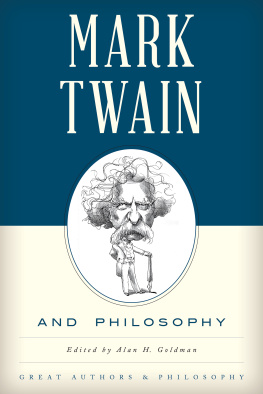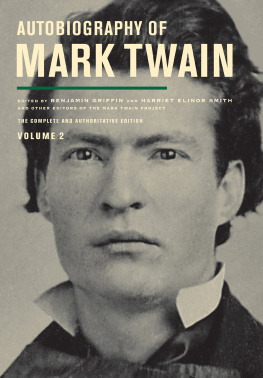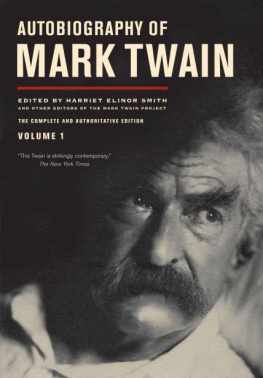Contents

Routledge Revivals
Mark Twain as a Literary Comedian
Originally published in 1979, Mark Twain as a Literary Comedian looks at how Mark Twain addressed social issues through humour. The Southwest provided the subject for much of Twains writing, but the roots of his style lay principally in north-eastern humour. In the mid-1800s the northern United States underwent social changes that reflected in the writing of the literary humourists like Twain. Sloane argues that he used humour to describe conditions in the emerging middle-class urban experience and express his American vision and that Twains views on the human, social, and political conditions, presented through his fictional characters, elevated the use of literary humour in the American novel.
Mark Twain as a Literary Comedian
David E.E. Sloane

First published in 1979
by Louisiana State University Press
This edition first published in 2018 by Routledge
2 Park Square, Milton Park, Abingdon, Oxon, OX14 4RN
and by Routledge
711 Third Avenue, New York, NY 10017
Routledge is an imprint of the Taylor & Francis Group, an informa business
1979 Louisiana State University Press
All rights reserved. No part of this book may be reprinted or reproduced or utilised in any form or by any electronic, mechanical, or other means, now known or hereafter invented, including photocopying and recording, or in any information storage or retrieval system, without permission in writing from the publishers.
Publishers Note
The publisher has gone to great lengths to ensure the quality of this reprint but points out that some imperfections in the original copies may be apparent.
Disclaimer
The publisher has made every effort to trace copyright holders and welcomes correspondence from those they have been unable to contact. A Library of Congress record exists under ISBN: 78011125
ISBN 13: 978-0-8153-9562-1 (hbk)
ISBN 13: 978-1-351-18346-8 (ebk)
ISBN 13: 978-0-8153-9563-8 (pbk)
Mark Twain as a Literary Comedian
David E. E. Sloane
Louisiana State University Press
Baton Rouge and London
Copyright 1979 by Louisiana State University Press
All rights reserved
Manufactured in the United States of America
Design: Patricia Douglas Crowder
Typeface: VIP Aster
Composition: LSU Press
LIBRARY OF CONGRESS CATALOGING IN PUBLICATION DATA
Sloane, David EE1943
Mark Twain as a literary comedian.
(Southern literary studies)
Bibliography: p.
Includes index.
1. Clemens, Samuel Langhorne, 18351910Criticism and interpretation. 2. ComedyHistory and criticism. I. Title. II Series.
PS1338.S55818.40978-11125
ISBN 0807104604
For Jane
Contents
Mark Twain
The Development of a Literary Comedian |
Humor and Social Criticism
The Gilded Age and The Prince and the Pauper |
Adventures of Huckleberry Finn
The Literary Comedian Within the Novel |
A Connecticut Yankee
A Culmination of American Literary Comedy |
M ANY PEOPLE have contributed substantially to this work. Louis Budd at Duke University has been particularly valuable in helping in the search for information and the development of ideas. James M. Cox also deserves special thanks for contributing important ideas to the final work. Resources, libraries, and librarians at Duke University, Lafayette College, Rutgers University, and the University of New Haven have also been consistently helpful. Frederick Anderson and the staff of the Mark Twain Papers at the University of California at Berkeley also helped in the search for manuscript materials and letters. Lafayette College aided this work with a Summer Research Fellowship enabling me to carry on intensive research. I am also indebted to Bonnie Sloane for early encouragement and aid. Finally, I am grateful to the University of New Haven for both grant support and the warm encouragement needed to bring the work to completion.
Mark Twain as a Literary Comedian
T HE SOUTHWESTERN HUMORISTS have traditionally been identified as the major impulse behind Mark Twains humor. However, the hallmark of his comedy lies in his egalitarian vision, projected not through the local color elements that characterize the humor of the old southwestern United States as much as through the jokes, ironic inversions, and burlesques of another school of American humorthe literary comedians of the 1850s and the Civil War era. The southwesterners are not respecters of persons as much as they are respecters of social quality, and a major point of distinction between them and the emerging American middle class can be found in this point. Twains explosive sarcasm and verbal gags infuse his rambling plots with a thoroughly different and substantially more humane spirit.
Most of the southwestern authorsfor example Augustus Baldwin Longstreet, author of Georgia Scenes; Johnson J. Hooper, author of The Adventures of Simon Suggs; George W. Harris, author of Sut Lovingoods Yarns; and Joseph G. Baldwin, author of Flush Times of Alabama and Mississippibelonged to emerging professions in their region, such as law, medicine, or printing. They conceived of themselves not as writing for a general public, but rather as historical reporters describing their unique region at the same time that they scourged vulgar vices. Their humor has consistently been described as undemocratic and unsympathetic to the common man in his irregulated Jacksonian state.
The South itself was a region that remained agrarian while the Northeast industrialized. As W. J. Cash analyzes the southern mind, the simple southern environment produced a lack of complexity. Horses, guns, and dogs remained the preoccupations of even the Tidewater aristocrats. A static literature was called for, and respect for the classics, such as Shakespeare, was superstitious rather than culturally sustained. Urban centers did not compare to those of the North; nor did southern publishers or authors match the achievements of northern counterparts. Conditions were homogeneous, and slavery as a social phenomenon was understood as a constitutional right that safeguarded every social class.
Southwestern humor reflected its environment. Substantial yeomen like the hero of William T. Thompsons Major Jones Courtship are relatively rare, as is a medical man like Madison Tensas, the swamp doctor. Hunters, lubbers, and petty aristocracy are common figures, and they fit easily into William Trotter Porters Spirit of the Times, a sporting magazine that was a center for this genre. The mythical big bear of Arkansas, described by Thomas Bangs Thorpe as both the creation bear and the greenhorn who hunts him, is typical in his comic immediacy, vulgarity, and masculinity identified with natural backwoods experience. An aristocratic Native Georgian, like Longstreets Ned Brace, jibes middle-class travelers and city types, even when his pranks are less comfortable for himself than for the butts of the jokes.
Corporate society is little in evidence in southwestern writings, and its ethical complexities are seldom in view. Business is represented by the horse swap, law by the figure of the sheriff, and religion by the camp meeting and the parson. Harris Sut Lovingood and Hoopers Simon Suggs are the archetypal figures in the tradition, the former a natural durn fool, the latter a Jacksonian office-seeker whose motto is Its good to be shifty in a new country. Sut pins lizards to corpses to make them seem alive, feeds people alum, ties woodchucks in a drunkards pantaloons, and tears his own hide off with an overly starched shirt; his comedy is violent and insensitive. Twains fiction occasionally shows such traits as verbalized humor but seldom as dramatic incident, with the exception of the bulls and bees episode from Cecily Burns Wedding, which was purged from at least one manuscript before it was sneaked into

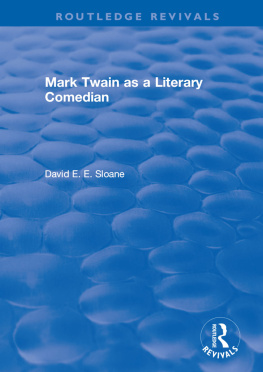
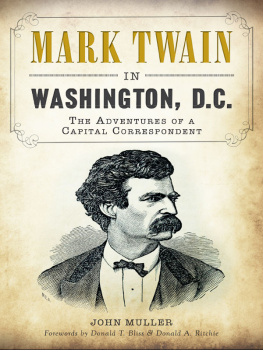

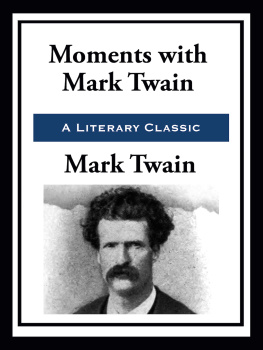
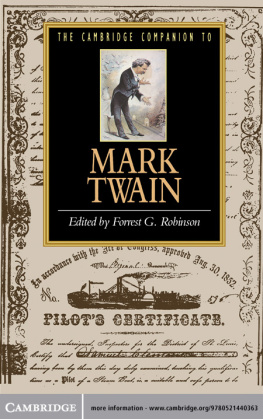
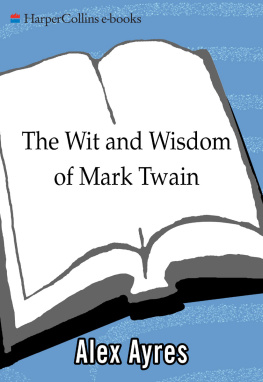
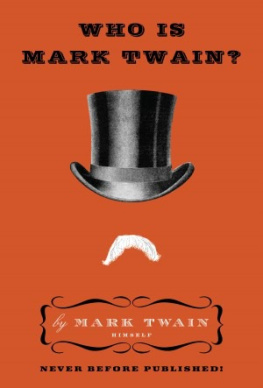
![Twain Mark - Autobiography of Mark Twain Vol. 1 / associate eds. Benjamin Griffin ... [et al.]](/uploads/posts/book/210276/thumbs/twain-mark-autobiography-of-mark-twain-vol-1.jpg)
